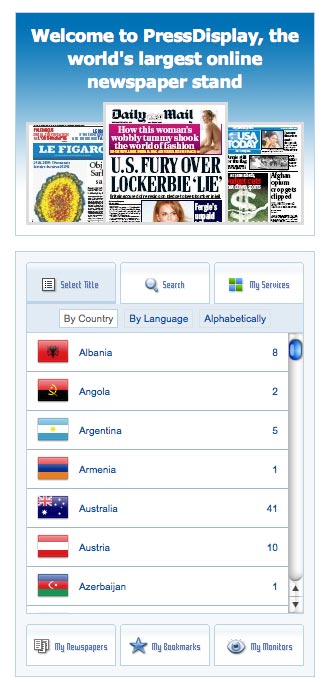MSN UK will now feature its own version of PressDisplay.com, which provides an archive of digital editions of newspapers and magazines, according to a press release from earlier in the week.
PressDisplay, which is owned by newspaper distribution firm NewspaperDirect, features e-editions of titles including the Times, Guardian, Washington Post and the Australian.
 The new feature on the web portal will be branded as MSN PressDisplay and will give users free access to the front page and two stories from any publication on the day of print. To access more stories and back issues, users will be required to register with PressDisplay and offered subscription offers, starting at 79p to buy a credit to view another article.
The new feature on the web portal will be branded as MSN PressDisplay and will give users free access to the front page and two stories from any publication on the day of print. To access more stories and back issues, users will be required to register with PressDisplay and offered subscription offers, starting at 79p to buy a credit to view another article.
The service offers different packages for personal and corporate use including greater access to archived editions, for example, the £79.95 ‘Corporate Unlimited’ lets subscribers go back up to 60 days in the archive.
Titles can be searched by country, language or browsed alphabetically, and search preferences can be saved by individual users.
The service is compatible with iPhones, Blackberry and eReaders, the release said and also offers interactive features – such as the ability to comment on articles and share them via social networks or email.
“Together we have been able to deliver innovative features which give consumers access to a huge number of publications on the great NewspaperDirect interface. At a time when the survival of newspapers is being questioned we see this as a great outlet for newspaper content,” said Peter Bale, MSN executive producer, in the release.
MSN UK also recently launched its local news and information site MSN Local.